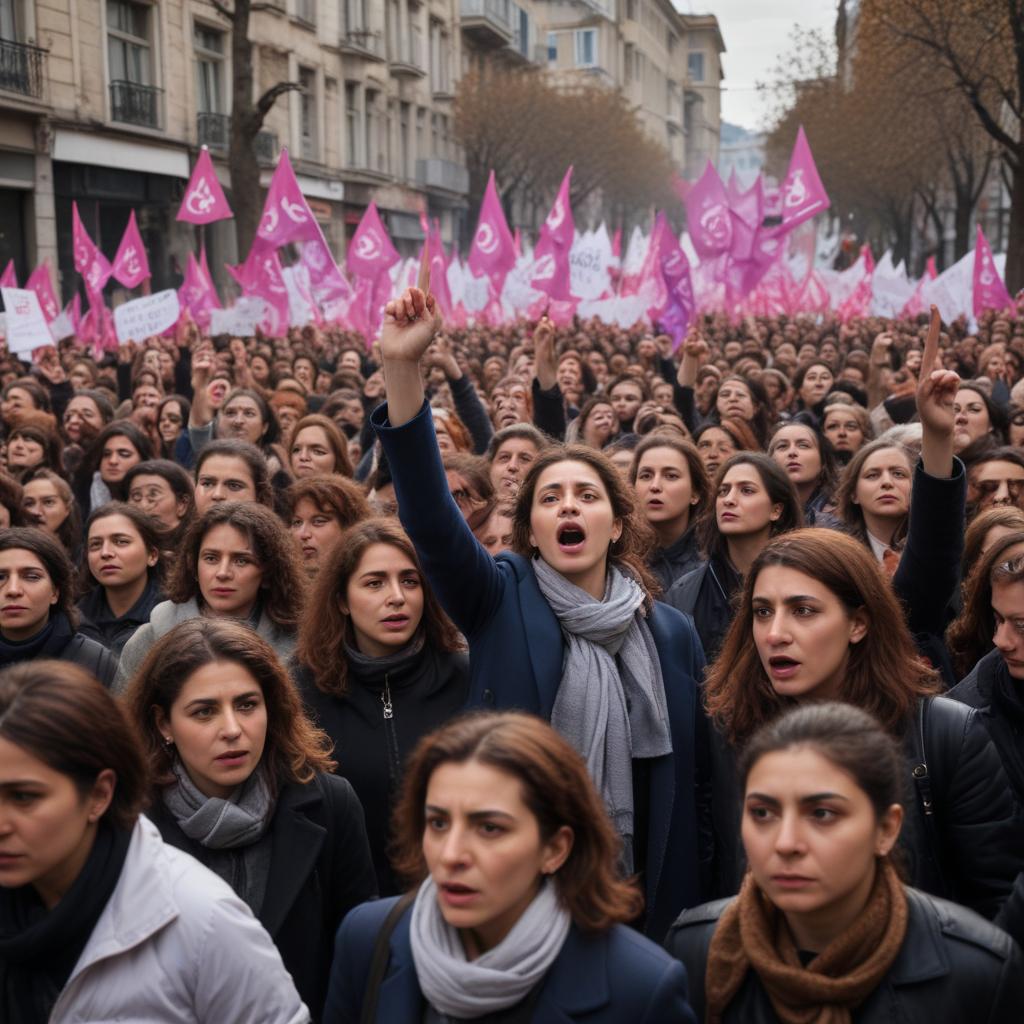Women worldwide took to the streets on International Women's Day to demand an end to gender-based violence and inequality, with protests ranging from Turkey to Europe and South America.
International Women’s Day saw widespread protests across Europe, Africa, South America, and beyond, with women demanding an end to inequality and gender-based violence. In Istanbul, Turkey, a large rally in Kadikoy featured speeches, dancing, and singing, despite a significant police presence. Protesters challenged the Turkish government's declaration of 2025 as the "Year of the Family," arguing against the confinement of women's roles to marriage and motherhood. The government has faced criticism for restrictions on women's rights and insufficient action against violence, including withdrawal from the Istanbul Convention in 2021. One Turkish woman, Yaz Gulgun, highlighted the societal pressures women face. Across Europe, women protested violence, demanding better healthcare access, equal pay, and an end to discriminatory treatment. In Poland, activists opened an abortion pill center across from parliament, symbolically challenging restrictive abortion laws. From Athens to Madrid, Paris, Munich, Zurich, and Belgrade, women marched against being treated as second-class citizens. In Madrid, protests highlighted the case of Gisele Pélicot, symbolizing the fight against sexual violence. North Macedonia saw thousands marching for economic, political, and social equality, highlighting the low property ownership rates among women. In Nigeria, thousands gathered in Lagos, celebrating womanhood. Russia's celebrations had a more official tone. German President Frank-Walter Steinmeier urged stronger efforts for equality and warned against the rollback of progress, citing the example of tech companies prioritizing "masculine energy." South American marches focused on protesting femicides, with demonstrations in Ecuador and Bolivia demanding justice and an end to impunity in such cases.



